The democratization of attention is on the rise, and brands must pay attention to this major shift in media marketing. Advertising is no longer linear, and there are countless ways to target consumers at scale—but what about showing up for the unreachable consumer? Perhaps shoppable tv is the answer.
In order to stay competitive, it’s important for marketers to explore new media channels and the platforms and partnerships that do this well.
The NYC marketing community gathered for an MTM Forum hosted at Roku’s brand-new headquarters to discuss how to reach traditionally unreachable viewers with new options for conversion, including breakthrough video commerce.
The Visionaries on the forefront of this shift are: Kalen Thornton, VP Sports, Entertainment & Gaming at PepsiCo; Nick Buzzell, CEO at NBTV Studios & Channels; Brian Beitler, Founder of Sune and GM Live Shop Ventures LLC; Dan Robbins, VP, Ad Marketing & Partner Solutions at Roku; and Suzy Whaley, President at Golf Nation.
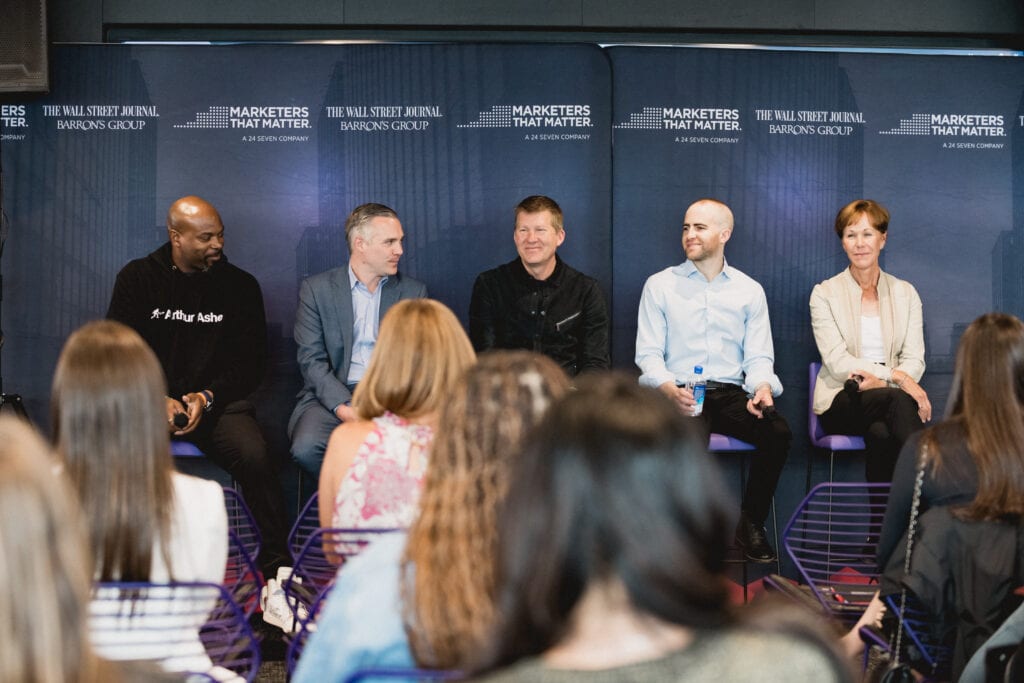
Listen to their full conversation to hear their insightful examples and real use cases on the MTM Visionaries Podcast, available on your favorite streaming platform.
Nine Things Marketers Should Know about Clickable, Shoppable Media (or TV)
1) There’s a growing diversity of media options.
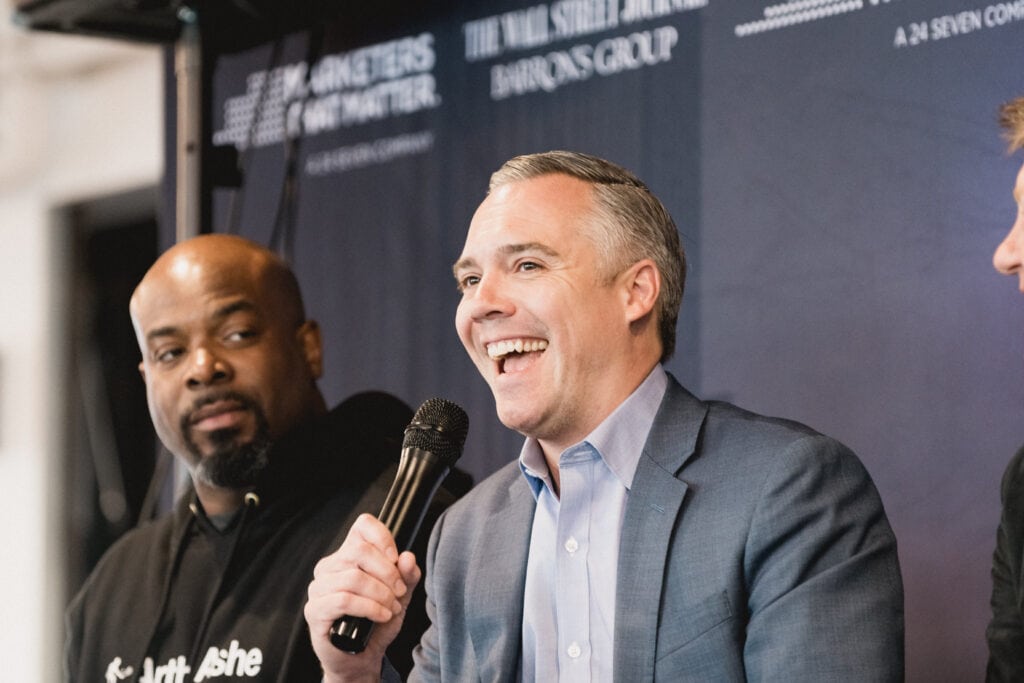
Nick Buzzell (NBTV): There are two main types of ads: commercial spots and branded content. All of this is available on different devices like smart TVs, connected TVs, and mobile devices through apps and the web. The important thing to remember is that everything is streaming and app-based, making TVs more like mobile phones every day.
Examples of media options include:
- FAST Channels (Free-Ad-Supported Streaming TV) transfers the cable grid from cable boxes to televisions and other devices (i.e., Roku)
- Streaming services aggregates channels and runs ads in between them (i.e., Zoomo)
- Video on Demand allows you to watch TV without any ads (i.e., Netflix)
- Hybrid models offer both ad and non-ad options (i.e., Hulu)
- Shoppable Video Commerce allows you to make purchases right through the device, whether that’s by clicking straight from the device or using QR codes (i.e., Spirits Network)
2) TV is becoming just as shoppable as mobile devices.
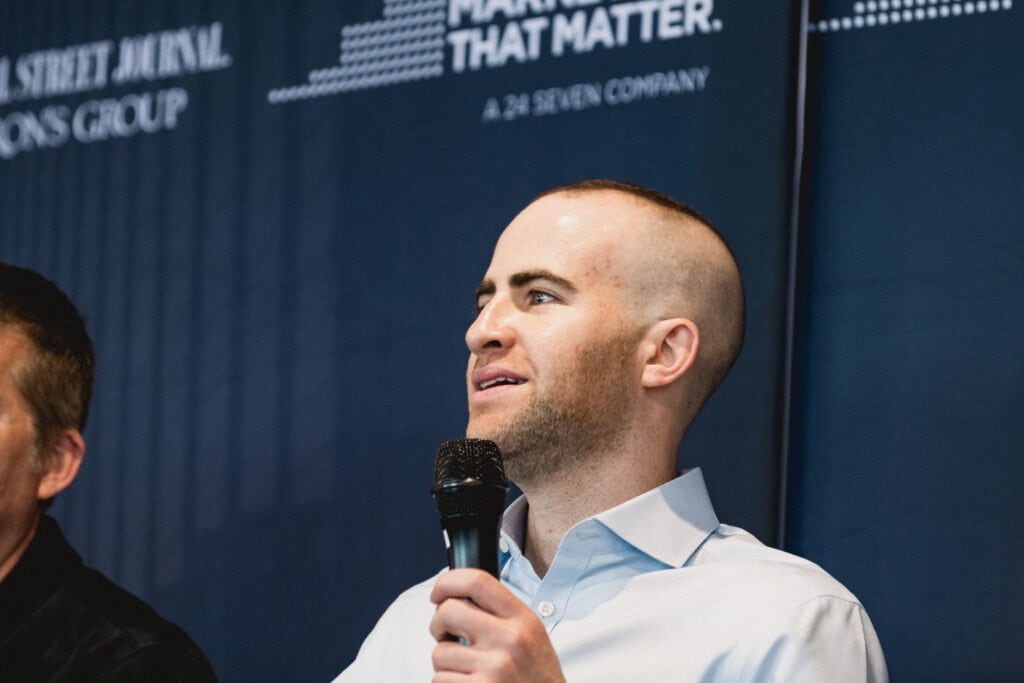
Dan Robbins (Roku): Our mission is to connect consumers, advertisers, and content owners in a world where all TV is streamed. Our vision is to make TV better for everyone by bringing the power of computers onto the largest screen in the home.
One exciting opportunity we have discovered is shoppable video commerce. Imagine being able to buy a sweater you saw on Jennifer Aniston or a PepsiCo product you saw in an ad right from your TV. Our ultimate goal is to make shopping on TV as easy as it is on mobile devices. We believe that this is the next frontier in a world where all TV is streamed.
3) The future of e-commerce is v-commerce.
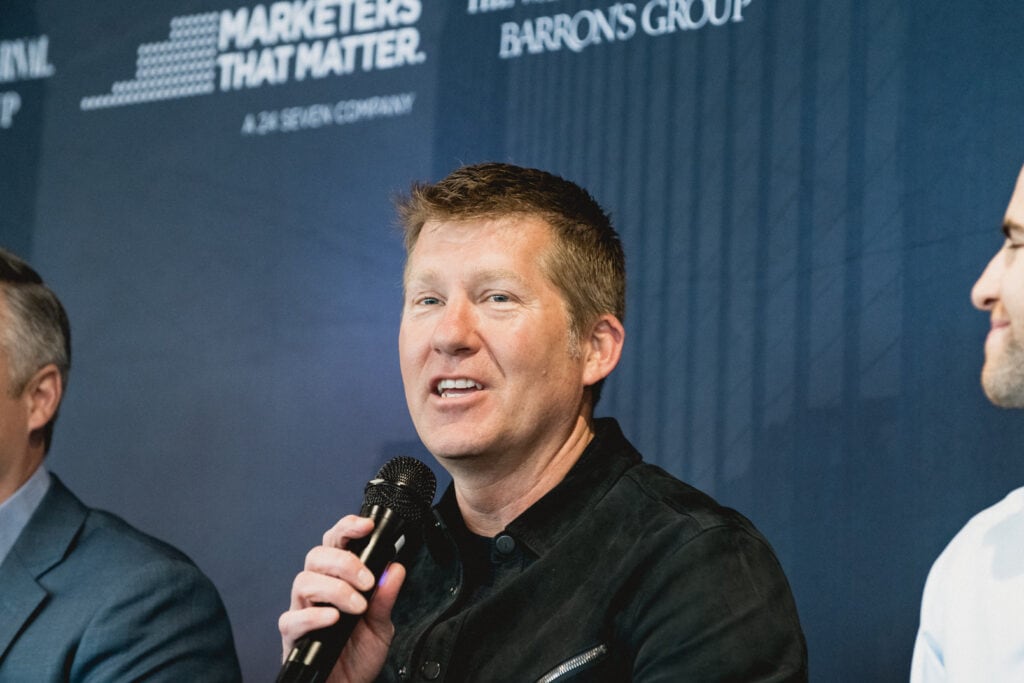
Brian Beitler (sune™): Video is becoming the primary way people discover and engage with products – whether on big screens through connected TVs or on small screens through apps like sune – and there is a growing demand for emotional storytelling tied to those products.
At Qurate Retail Group, we have always believed that shopping is a form of entertainment in itself. On both big screens and small screens, our goal is to make shopping easy and create platforms where shopping is the entertainment.
We want to make the experience frictionless and personalized for each viewer and believe people will tune in to discover new products and brands they want to bring into their lives.
4) Inclusivity and accessibility are vital.
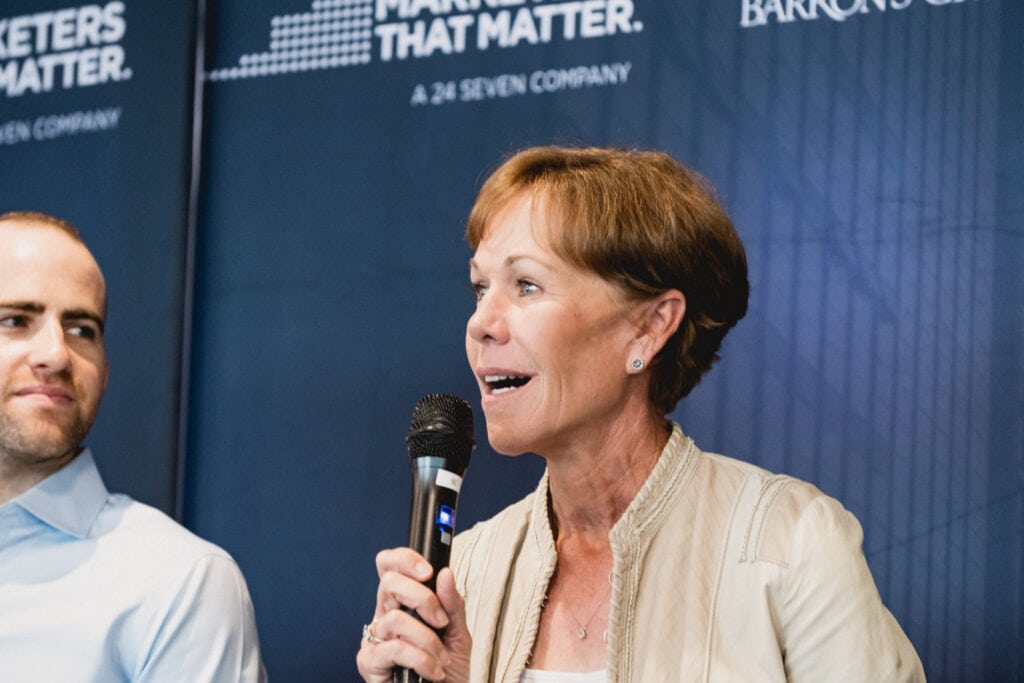
Suzy Whaley (Golf Nation): As the first female president of the PGA of America in over a century, my focus was on making golf more accessible and inclusive to everyone. The organization consists of 29,000 members across the country, and only 4% of them are female. The gender divide in golf is also evident, with 75% of players being male and 25% female.
We aimed to create a platform that showcased the game as a form of entertainment and encouraged all people to participate in it. We still have a long way to go in promoting women’s sports and non-white players in the game.
At Golf Nation, we are committed to showcasing the true face of golf and making it an enjoyable experience for everyone, no matter what they look like. We want to disrupt the current model of golf media coverage and give viewers a shopping experience that they can cherish.
5) Connecting emotionally is crucial.
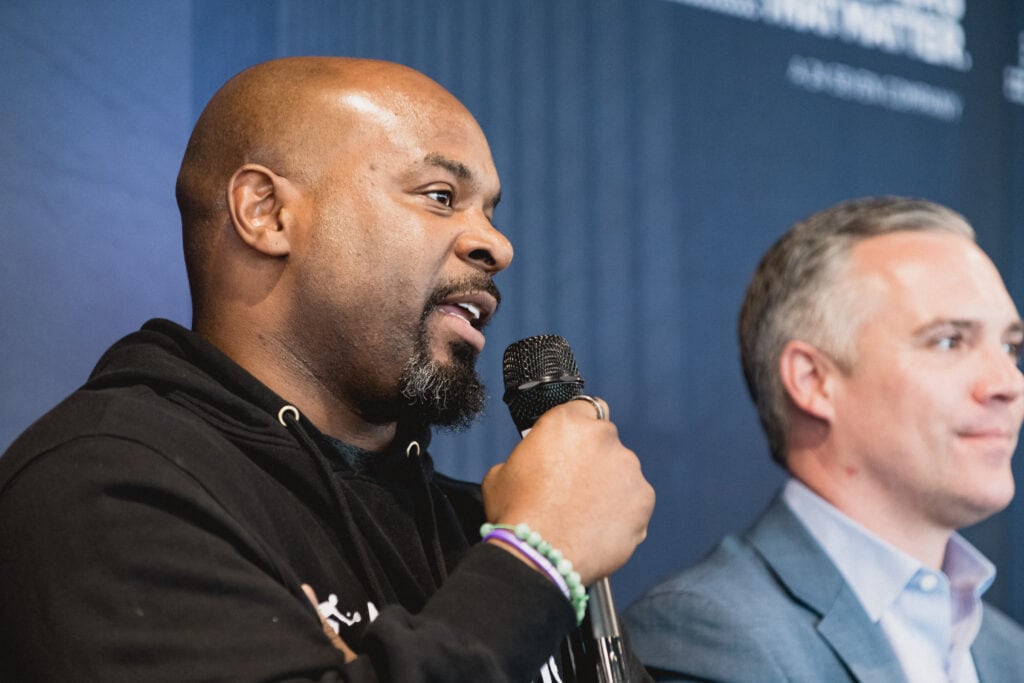
Kalen Thornton (PepsiCo): Connecting with consumers on an emotional level is the key to success, but it requires careful planning and authentic relationships. This can be achieved through various means, such as product development and partnerships with athletes or leagues.
Storytelling is important, and it’s essential to consider where and how to tell those stories for maximum impact.
The future of sports marketing lies in evolving endorsement models and creators driving their own brands, leveraging the many tools and media channels available today. As a marketer, it’s important to navigate this new landscape and continue to create emotional connections with consumers.
💡TIP: To engage the “hard to reach’ consumer, we need customization, contextual storytelling, and education. This can be done through AI, the creator economy, experiences, creating trust through content, and measuring consumer response.
6) Real-time shopping requires real-time strategies.
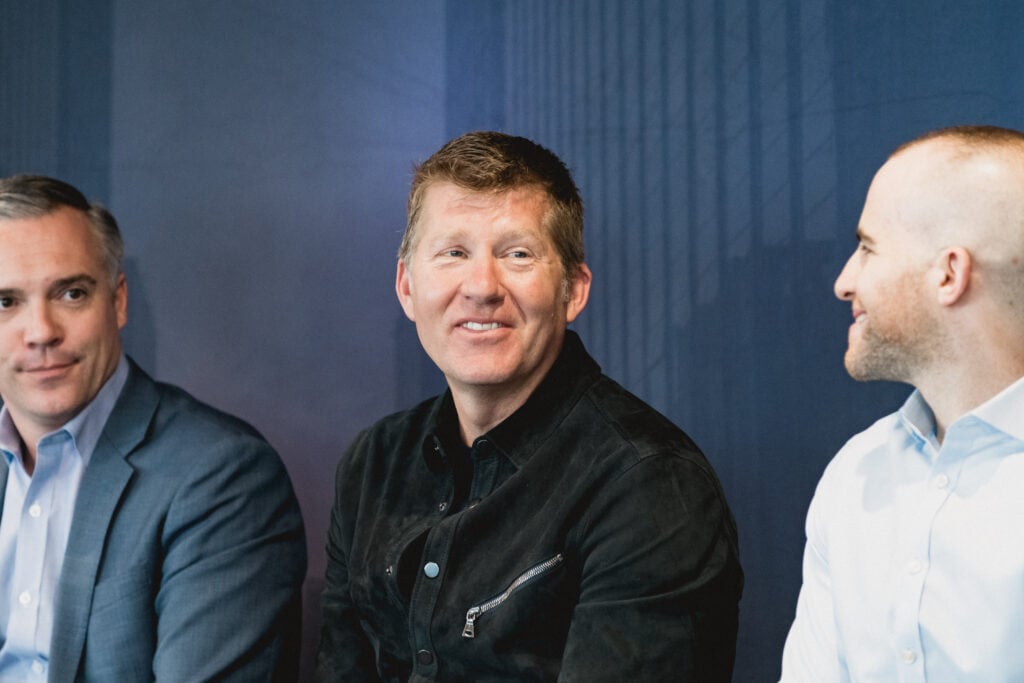
Brian Beitler (sune™): The name of our platform is Sune, spelled S-U-N-E, which is actually a clever play on the word “soon.”
We wanted to create a platform that creates a sense of urgency and impulse, which is why we emphasized the importance of shopping sooner rather than later– especially in today’s drop-centric culture, where getting something unique and special first is highly valued.
Our platform is focused on under-discovered brands that may not have a lot of assortment. We believe that by building an audience that has a large following, we can help these brands tell their story and grow their business.
Encouraging a sense of urgency around shopping allows consumers to get the assortment they want before it’s gone. That’s the genesis behind our name, our business, and the model we are building.
7) Measuring ROI in this new landscape is still in its infancy.

Kalen Thornton (PepsiCo): When it comes to the ROI, it’s a constantly evolving conversation around the tradeoff between driving scale versus finding the unreachable consumer.
Big brands face different challenges when navigating this than smaller ones. Startups can employ scarcity models in a way that doesn’t affect their profits, but it’s harder for larger brands like PepsiCo and Gatorade to do the same.
Evaluating ROI is challenging because there are only so many media and partnership dollars to go around. In the past, brands could attend an upfront event and reach a limited audience.
Now, with new fronts and additional platforms, the economics of it all are still in their infancy. The cost of investing in these platforms is prohibitive, even if brands wanted to.
Brands simply can’t pay the same amounts as they used to for linear networks; this is another area that will need to mature in order to make the experience frictionless for consumers. Brands will have to find ways to engage that allow for smarter decision-making, and pricing may need to evolve as well.
8) There’s a need for more discovery and personalization.
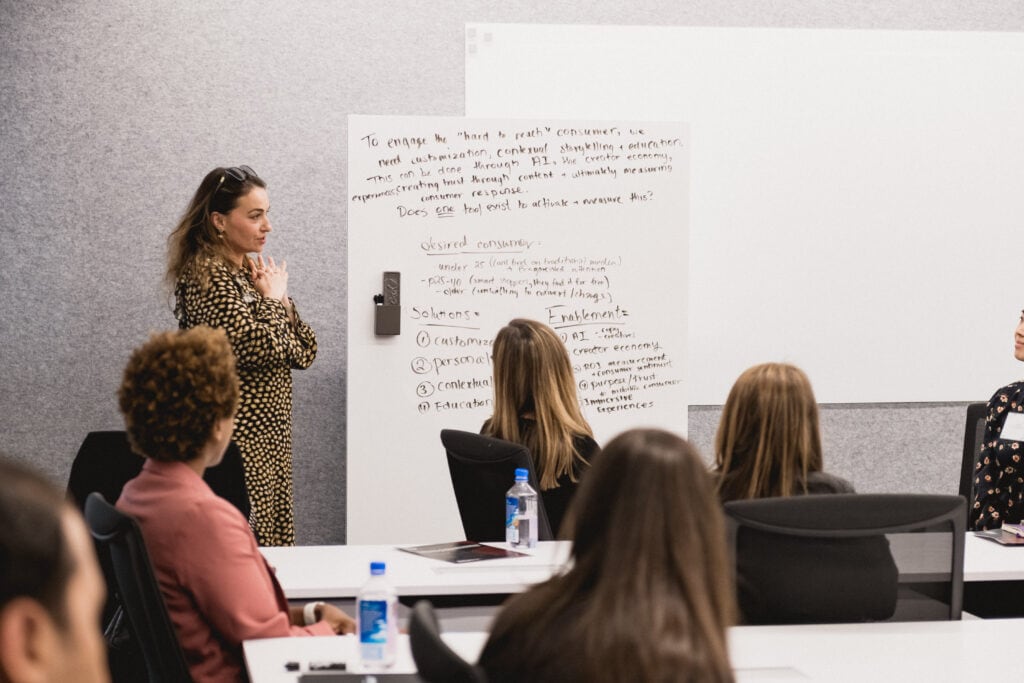
Nick Buzzell (NBTV): I was a co-inventor of in-video purchasing and a product recommendation engine. My father (the CTO) and I have been working on this idea of shoppable video for 22 years. While working at NBC Digital, I saw the potential for this trend early on and believed in its potential to make buying things easier.
Our technology focuses on discovery and personalization, which are the two biggest needs in the industry. We want to simplify the consumer journey by making recommendations based on their interests.
When you join one of our channels, such as Spirits Network or Golf Nation, we ask you questions about your preferences to make better recommendations. We are the only company in the world that can sell regulated products, like alcohol, on a connected TV.
Our goal is to make the technology consumer-friendly and easy to use, such as consumers buying things with just one click or with their voice.
9) There’s still opportunity to simplify streaming.

Dan Robbins (Roku): At Roku, we focus on making the streamer’s journey as simple as possible, with ease, choice, and simplicity being our top three priorities.
We keep the discovery process simple by providing a sports zone that compiles all live sports in one place, a featured free section that gathers everything free across our platform, and a universal search feature that lets you find a show with just your remote.
We see a great opportunity in bringing this same ease and simplicity to streaming commerce and have already seen conversion rates increase by 10x by removing obstacles. The lesson here is that when we make things simple and delightful, that’s where the real opportunity lies.
💡TIP: All content must be Entertaining, Emotive, and Easy…just remember the three Es!
____________________________________
Find the MTM Visionaries Podcast On Apple, Spotify, Amazon, and more!
Visionaries, hosted by Nadine Dietz, airs every week and is brought to you in partnership with The Wall Street Journal. Each week, two new visionaries share their game plan and how that impacts today’s teams, talent, and hybrid work environment.
Meet The Visionaries
Brian Beitler, Founder of sune™, and GM Live Shop Ventures LLC: Brian Beitler is Founder of sune™, a next-generation experiential shopping platform, and General Manager of Live Shop Ventures, LLC, part of Qurate Retail Group. Previously, Brian served as Chief Marketing officer for QVC US and HSN. With over 20 years of experience in Marketing, Business Development and Strategy, Brian Beitler has an eye for building brands, driving sales and profit growth, and cultivating long-term, high-value customer relationships. He joined QVC US and HSN after most recently serving as J. Jill’s Chief Marketing and Brand Development Officer for the women’s fashion brand. Prior to J. Jill, Brian held CMO roles at Lane Bryant, Catherine’s and David’s Bridal. Brian has also held strategic and senior marketing leadership roles at Kohl’s, Bath & Body Works, Toys R Us and Mattel. Brian’s passion for Marketing expands outside the office as he currently serves on the board of The Ad Club, and as Chairman of the Board of the Global Retail Marketing Association.
Dan Robbins, VP, Ad Marketing & Partner Solutions at Roku: Dan Robbins is Vice President, Marketing & Partner Solutions at Roku, where he leads the marketing, research, analytics, events, design, and branded content for the ad business. Dan joined Roku in 2017 to lead research and measurement for advertising and programming. Before Roku, he worked on several strategic partnerships and product rollouts at Nielsen. Dan has presented at the 4As, Advertising Week, Advertising Research Foundation, and appeared in Ad Age, Ad Week, and other publications. He was named to the 2018 Broadcasting & Cable “40 Under 40” list, the 2019 GRIT Future list, and the 2019 Fellows Program at the Economic Club of New York. He is also the executive sponsor of Pride @ Roku. Dan is a graduate of Cornell University and based in New York.
Kalen Thornton, VP Sports, Entertainment & Gaming at PepsiCo: Kalen Thornton is a global business and brand leader who believes in using the power of sport and innovation to unlock human potential. Kalen serves as the VP Sports, Entertainment & Gaming at PepsiCo. Before that, he was named CMO at Gatorade in 2021, after 10 years leading transformational brand initiatives at Nike and Jordan Brand. Before joining Gatorade, Kalen worked with iconic athletes and creative collaborators on significant initiatives across Nike’s brand portfolio, including digital sport launches, the marketing plan for the Air Jordan 1 franchise, and league partnerships with the NBA and NFL. His title at Nike was Global Vice President for Nike Basketball and North America vice president of Men’s Brand Management. He played collegiate football at the University of Texas at Austin where he received his bachelor’s degree in business administration, and he spent time playing professionally with the Dallas Cowboys.
Nick Buzzell, CEO at NBTV Studios & Channels: Nick Buzzell is one of modern-day media’s most-respected entrepreneurs and media executives. Blending entertaining storytelling with advanced technology and commerce, he founded and currently pioneers two of the world’s most valued streaming channels, Spirits Network and Golf Nation, to extraordinary heights. Previously, Buzzell rose the ranks from MTV to “The David Letterman Show” and Executive Producer of the hit “Watch What Happens Live with Andy Cohen” on Bravo. He was part of the original team that became Hulu all while leading digital production at NBC Universal Digital Studios, before heading up Big Fuel, the first pure-play social agency that created branded video campaigns for GM, Neutrogena, McDonalds, AOL, Fox, and other goliaths. Buzzell has been a featured speaker at SXSW, NATPE, Ad Week, Internet Week, Universities, and various film and TV festivals.
Suzy Whaley, President at Golf Nation: The PGA of America’s first female president, Suzy Whaley was an LPGA Tour member in 1990 and 1993. She is currently the PGA Director of Instruction for the Country Club at Mirasol in Palm Beach Gardens, Florida. After becoming the first PGA of America woman to win the Connecticut PGA Championship, she famously qualified and participated in the 2003 Greater Hartford Open, the first woman since Babe Zaharias in 1945 to qualify for a PGA Tour event. Whaley has been named a Sports Business Journal “Game Changer” and was honored with the 2017 Betsy Rawls Award from the American Junior Golf Association for her service, dedication and contributions to women’s golf.
Marketers That Matter® is a community of top marketing executives coming together to pioneer the future of marketing, sharing real-time experiences, and solving current challenges.
Our parent company, 24 Seven, specializes in helping you find exceptional marketing and creative talent for your teams.

